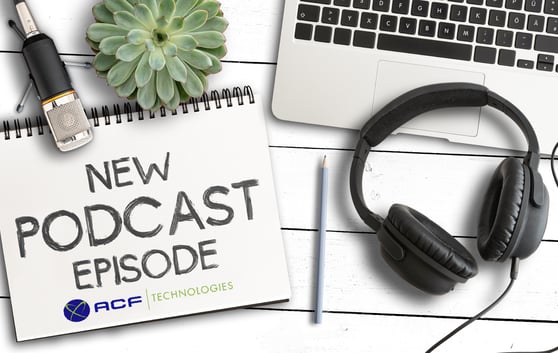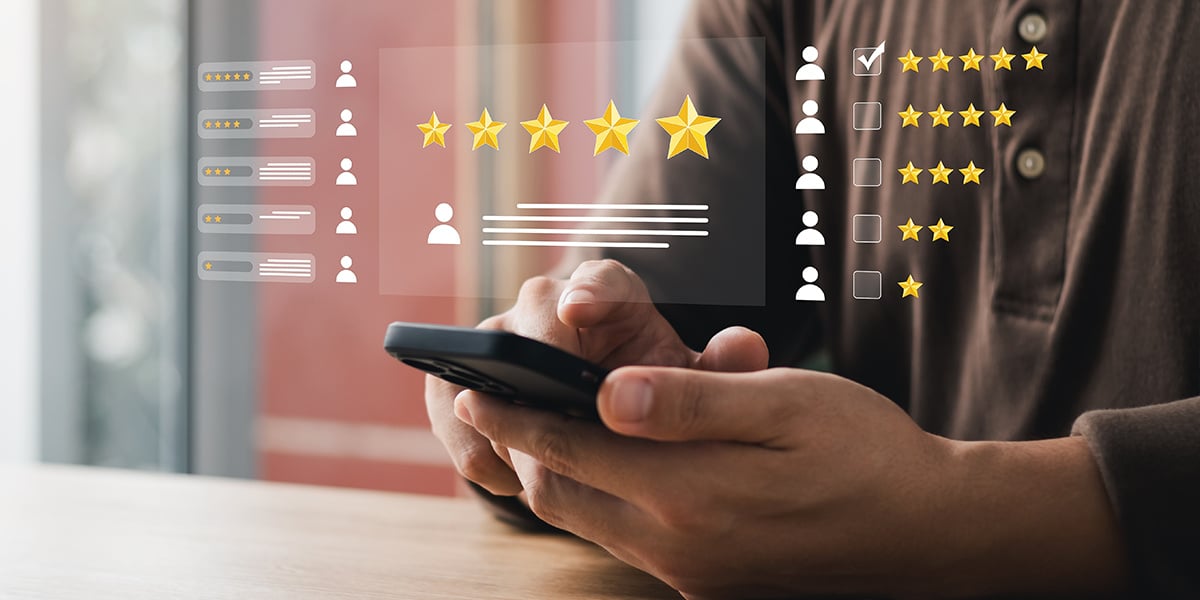Physical branches have been declining in numbers over the last decade, and generally online banking channels have been taking over. The most disruptive introduction of which is the digital only "challenger banks". These financial institutions have 0 branches, a fact that would have sounded ridiculous just 10 years ago. However, the role of these two types of financial organisations have yet to be clearly defined.
The rise of digital challenger banks, and fall of traditional banking?
Episode 04 Summary
Will Monzo and Revolute truly disrupt the retail banking industry? Can they coexist with traditional high street banks?
One thing the digital banks are currently doing better than traditional, is hosting experiential marketing events. This is Ironic, as they do not have physical locations but are doing face-to-face personal interactions (in the form of events) better than banks, that do have the physical capital to leverage.
The Digital challengers understand that face-to-face, human interaction is absolutely necessary. However, they keep their banking experience mostly consistent. 99% of all daily transactions that are done through a bank branch, can be handled by these digital banks. The individuals using these digital banks know this and expect an end-to-end streamlined digital experience that is in their control. The expectation is consistent.
Digital banks and trust.
However, the average consumer is feeling uneasy about allowing these digital banks to manage their salaries, mortgages and loans directly. Instead these platforms are being utilised for small, low value daily transactions and budgeting.
This is likely a psychological trust and reassurance issue, that if something went wrong - there will always be a human to help you with your enquiry in a branch of a traditional bank. A Safety net of such… What will you do if the Monzo app goes down for maintenance? Or you have ran out of data?
Although low value services are still going through a branch, and increasingly being made more automated by the different self-service ATMs available, It is unwise to reduce friction for the higher value services, as these enquires require a modicum of reassurance through the face-to-face experience with a branch specialist.
Should high-street banks be focusing investment on creating friction-less experiences?
As discussed, the digital banks give the guarantee of a friction-less experience. However, Retail Banks should address this issue and realise that it does not apply to all services they offer. Is trying to compete with digital banks with their app’s flexibility the best decision if the nature of transactions is so different?
On a Friday night you will see orange Monzo cards going across the bar every 10 seconds. You will not get paid straight into your Monzo account though.
It’s important for traditional retail banks to clearly define their current services in-branch, and analyse how it is being fulfilled. Paying in checks for example, is now also automated.
This change allows resources like people to be freed up, to create more meaningful experiences with high value customers. High value customers have a different expectation to someone cashing in a check. They want a specialist’s attention, for an extended period of time to assure them they are in good hands.

Banks should be focusing on prioritising the one-to-one personal experience.
Bank branches need to change. That is exactly what Santander are trying to achieve with their Work Café branches. They are creating meaningful and social experiences in a relaxed, yet professional environment. The customer walks in and is introduced with a barista first, not a teller.
Creating these modern communities and efficiencies within your most expensive resources is fundamental in developing a 2020 branch network.
Up-skill your staff to identify consumer preferences, direct them to the right stores/Cafes, so they are surrounded by the right people and staff so they can experience a memorable face-to-face experience. The focus should not be about removing friction. Instead, transforming the right kind of friction into a USP, a memorable experience with a person – not a screen.
Could new communication channels such as video appointments meet consumers need for face-face interactions?
Video calls are undoubtedly more personal than phone calls. We have implemented a video calling solution to connect banking specialists to customers remotely through 2 dedicated video calling rooms.
Although, implementing technology like this has its challenges, its acceptance is more important than its functionality. 3D television has been around for a while now; however, they are not very popular. They make users uncomfortable and are not worth the hassle.
It will only be a matter of time before new customer engagement channels are accepted, but it will likely take a generational shift.
Physical banks should always remain. What appears to be happening is the creation of a dyadic relationship. Traditional retail banking should stay as the hub for high value transactions and evolve into community hubs, thus creating meaningful friction. While digital banks will continue to optimise the low value, daily transactions and payments, removing unnecessary friction.
Retail banks should remain wary of digital challengers expanding their events strategy, as this could start eating away at higher value customers.
More episodes

Full Episode Transcript
Louis: Hello, this is part three of our retail banking mini-series. In this episode, Simon Adam, Greg and myself discuss the challenges and opportunities that both digital and physical banks are facing now. Welcome to another episode of customer experience conversations with me today is Simon Ronald, Adam and Greg.
Greg: Hello.
Adam: Hello.
Simon: Hello.
Louie: Today we're going to be talking about the challenges associated with the physical branches and the digital challenger banks that have been popping up over the last few years. Does anyone have a story or anything that they want to share to begin with?
Simon: Not a story but maybe just looking at all of the advertising in London on my way in today on the side of buses where digital banks, I think it was Starling bank was advertised on the side of buses. You've got Monzo, so maybe we start with that with everyone where they think how popular they're going to become. Are they going to replace branches?
Greg: I was with a customer yesterday at Building Society and they were talking about how they are building out their event strategy and working with us, but they actually said that it's from a lot of the research they've done around events that some of the organizations that are actually doing events the best ironically are those digital banks now. So the likes of Monzo and the likes of Starling for example and that's something that's new for me to learn that. I was intrigued by that dynamic that they picked up that they said that for them, the event, face to face interactions, almost more important.
Adam: Otherwise they don’t get to see them, I guess.
Greg: Exactly otherwise there is no human interaction and I think that we all know that it's needed. That was interesting because I had not seen that. And like I said, if you've seen on the bus.
Simon: The question is where do they hold those events?
Greg: Well, yeah, I don't know. I need to do some research on that I think. I think for us as a brand working in the banking sector, we'd like to talk about today the different challenges that we see that may be different between these digital banks and these physical banks.
Louie: Yeah, hasn't it just changed expectations slightly?
Simon: I think there's that expectation when you use a mobile only bank that you know what service you're going to receive. There is an expectation that is consistent. You know that you're going to have an end to end digital experience and you know you're not going to have a face to face, so your expectations are managed from the absolute outset. So that in a way makes it easier for those organizations to attract new customers because of that reason. I think the minute you then have a physical branch is when you've then got to start to identify different types of people that walk in. I think it's completely differently. The online digital mobile banks can handle probably 99% of all of the transactions that you go to a bank for. So, what do we think the future of that bank's going to be? The physical bank is going to be from now on.
Adam: I think a big thing that I realized with digital banking rather than obviously physical is, I use digital banking and one of the things that I've noticed is it's very easy to set up your account. You know exactly what you're doing with it. But what the thing that I think the physical banks could use as an advantage to them is I wouldn't pay my salary, for example, into my digital bank yet. I don't know why. Subconsciously, I just think that the whole idea of opening up an app, setting up on the fly, and then setting up my mortgage, my physical salary will come out of that. It just doesn't sit right with me. So I think there's definitely something there that the physical banks could use. Maybe they are using it. I don't know. It’s a message they could do.
Louie: So you're using it then just for the low value daily transactions, you're not going to use it for anything that's, to you, more important?
Adam: Everything like mortgage, all that kind of expensive stuff doesn't come out. It's just the day to day.
Greg: Why do you think that is?
Adam: Trust maybe.
Greg: Do you think there's thought physically anyway you could go if the app stopped working.
Simon: Is it the trust, I do exactly the same by the way. I use Santander and I've never had to fight Santander. When you set up a direct debit it just works. But I have the same thought as you. I don't do that with my digital mobile banks, which is quite funny there. Maybe we do just have that safety net.
Greg: Does that mean we do use physical banks just to transfer their money but then all the rest of the money is going to sit with these online.
Simon: All these bank branches just exist as that safety net for you to think actually if something goes wrong, I've got some way to go. I won't and I haven't for years. That probably is quite a nice thing for customers, that confidence that if I needed a face to face they exist.
Louie: So do you think the frictionless experience is always going to be reserved for the smaller transactions?
Greg: I think so. Looking at the way banks need to reduce costs and the way that all consumers are changing what they do, I think whether you're lucky or not, the use of cash has kind of dropping as years as the years go on, those low value transactions will all move digital. And I think these, these mobile banks, the success of them is kind of proving that point. So I think that's what really banks do need to look at is how do you maximize on those higher value transactions for the customers that do actually arrive in a branch.
Louie: So is it right for banks to be focusing on frictionless experiences?
Adam: No. Probably the opposite, I'd say.
Louie: Why is that?
Adam: I'll tell you the opposite. The expectation that you've got when you open an account on a mobile and digital bank, it's consistent, you know from the beginning to the end, exactly what your experience is going to be. As we just mentioned, we even know how we're going to use the bank afterwards from the outset for low value transactions, day to day payment and I think that the branch needs to address the friction side of things. You want to create a community driven environment where people will turn up for advice.
Greg: Let me try and expand on that bit a little bit. So my thinking is financial organizations need to address very clearly what are the different services they offer and where are those services going to be delivered in the future and I think that's going to change massively. Right now, like you said, we're happy to open account with a digital bank. We're not happy to use it for our primary outgoings or financial management for example. Like all your savings right now, would you put that into a digital bank? I don't know. That's even a higher scale. It's not even just your salary going in and out. That's like your actual savings and things like that. That's even more important to individuals. So I think maybe the question for organizations to be asking themselves is the services they currently deliver and where they deliver them, whether it's physical, whether it's online or whether it's via call center, how is that going to change? For example, just five years from now, because if you'd asked the general public two years ago with things like Monzo and Starling be as popular as they are today, you probably would have said no way, people just wouldn't trust that.
Adam: It'd be like put your salary in the PayPal.
Greg: You can stand at a bar on a Friday night and if you look down the bar, all you see is orange cards, Monzo cards going across the bar, bang, bang, bang across the bar. Whereas, like say, a couple of years ago, I wouldn't have predicted it would’ve moved that fast. So I think they've got that challenge to face, like you say, to create this frictionless experience in the right areas, they have to look at the services that they're focusing on and then try and work out where the customers can expect to have to fulfill those services. So for example, paying a check in three years from now or a year from now, even today, why should I have to go into a branch to pay check? That is a bit ridiculous. I think you said for your bank, you can actually do that, Adam.
Adam: I can indeed.
Greg: So you can do that via your app. For example, I can't with my bank, so that's one thing that I need to consider is that, for example, that's the only reason I go into a bank at the moment personally, is to ever cash a check in. And normally let's say it's normally a Nan that gives you 20 quid or something for your birthday and there's no other way to do it. That's just my thinking; I look at the services they're offering. Where are those services currently being fulfilled and how is that, cause we know it's going to change, but how is that going to change? Then the final batch sheet that was linked back to what you said Simon, was around how would that then open up resource or free up resource i.e. people and locations and branches to focus more on creating meaningful experiences with the higher value customers. So businesses, business owners, people that have multiple property mortgages, etc, they are much higher value clients and the expectation, I think from them one, two, three, four, five years out from now will be more face to face, more using that physical interaction to receive advice. But there was still, like you say, on a day to day we do those low value transactions of paying people and things like that. That’s my general thoughts, maybe it's not really an exact opinion, but it's something that is quite generic.
Louie: So maybe banks should focus primarily on optimizing that one-to-one personal experience instead of trying to make their branches completely frictionless?
Greg: Yeah, I guess it comes back to the idea of you create friction where it's needed and try and remove it where it's not around old customer experience. So, adding technology into the situation is not always or necessarily as the answer at all. We would like to hope that anything we implement in terms of technology or process is going to remove friction where it's, like say, where it's needed, but with, for example, someone who owns a business who's got multiple loans or maybe it's got multiple properties and therefore got a lot of mortgages out with yourselves. I don't think they're in a rush to get in and get out if they want to make some serious decisions about their portfolio or their business, for example. So I would say that in that situation, the technology, the process is going to be implemented, should be around creating the “level of friction” in inverted commas because it's not friction seen by the customer. It's this is what I would like to do. And I think that's again, another trend that maybe they have to look at. But that's different with digital banks versus ones that have physical locations as well.
Simon: I think I like what you said there that the idea of meaningful transactions is what a bank branch should focus on and as you say, it's not just the business owners but it's also kind of individual customers that have different expectations cause I think that's what we hinted at earlier, that your expectations when you use a digital mobile bank such as Monzo, your expectation is set. Your experience is delivered exactly how you imagine it will be delivered from the entire application process. But when you move to a branch it's when you get different people, different environments, different tastes. Some customers want to go in branch and have a frictionless experience. Some want the branch to stop for them. Some people want to go through an application form, line by line or they want to sit down with an absolute expert go through a how to do certain higher value, more complicated tasks I think is one thing. And then I think that lends itself then to creating a much more effective and efficient branch network. If we're then looking at helping a bank deliver more meaningful services in a face to face environment, then you can start creating efficiencies with your staff. No one likes to talk about, you know, reducing staff in banks at the moment is sort of one of those political things that that you can't really talk about such as, the location of ATM is being removed from certain areas. I do think some of those things that reported are being incorrectly reported. I think you can make a much more valuable and effective banking branch network potentially by upskilling your staff into certain areas. Having them work flexibly between different branches, even remotely out to see high value customers. That creates and that lends itself to more meaningful transactions, which I think is exactly what we're talking about here and the transactions that we're all talking about here that we do on our mobile phones are not meaningful.
We just using the mobile phones for day to day, low value transactions that now as individuals we don't even think about anymore. You just use Apple pay and you walk away. Those are immaterial. They're not even worth considering. I think from a customer base, I think bank branches need to change and maybe that's the focus that Santander was doing with their work cafes. Obviously the workforce nationally now is changing. You're getting flexible working hours. You can work remotely. People now with technology you can work from anywhere. We work offices are obviously becoming more and more popular because as a startup company it's so much beneficial for you to have low cost, office space through we work in an environment where you're networking with other people who are in the same position as you. Typically in London you can have we work as a startup working next to companies like Google and Microsoft. So you've got instant access to other people and experiences and I love what Santander was doing in that environment cause I think that then the bank branch, the estate, the network become somewhere that people want to go to work. So you're there and couple that with upskilling your staff to create efficiencies means that you can have the right staff in the right branches whilst you're sitting there working to have those meaningful conversations that you're talking about.
Greg: I guess the challenge that they face. What about maybe just before the end of the podcast, talk about one opportunity that we see in that dynamic and one that comes from technology, for example, the use of video. So with video interactions it’s a bit of a gray area such because you're not physically there with them, but you get that feel and maybe I don't think it's being used a huge amount right now in the banking space, but I got a feeling and it will be because like I say, it's going to create that face-to-face element. So, for example, let's talk about like Monzo for that example, right? They are a digital bank, they do not have physical locations as such, but they have people and you need to see those people and you can see them at events, but you could also see them via video. So do you think video will play maybe a key role in that space and therefore is an opportunity for not just digital banks but all banks to consider more, to use that more?
Simon: I do think that video technology in the customer experience space is inevitable, because it is slightly more personable than a phone call. In my view I think it’s going to need a generational shift. It's quite clear. At the moment you can do a direct representation between age and use of FaceTime on a mobile. So I do think it's inevitable. I do think it's valuable. I think it does solve a problem that exists where you need a more personal service than a call center, but you don't want to go into a bank branch. I do think it's just a generational shift personally. There's a funny thing isn't there that when I signed up to my Monzo account, I knew it would be digital from end to end. I liked the way I had to record a video, which obviously did facial recognition. It does facial recognition so it must do a bit of voice recognition as well for a bit of security. But I was comfortable doing that. If I'd have gone through that process and then I had to join a video call with somebody, I probably wouldn't have done it which is strange.
Greg: That's the sort of dynamic that I actually think is so fascinating because I think it's a channel or it's a medium whatever you want to call it. It's an opportunity that's huge within customer experience within the banking sector but it's burdened by the fact that people are not quite there yet. It's the old 3D television scenario where it's great and it works and we have all the technology there. You've got 4K cameras on everyone's phone nowadays on the latest phone. So it's not like the technology is not there, but it's just the acceptance from. But that will change and that might change faster than we think. We talked earlier about how digital banks a couple of years ago wasn't even a thing and now look at the likes of Monzo and Starling etc. Cause they're all in people's phones as apps now. They're obviously in there it sells physical cards.
Adam: The way that they sell those are interesting as well. If you sign up for Monzo light but with Revolut when you're buying other services, it's like buying an app. It's not a big sale. It's not a complex sell. So if you want to take travel insurance for example, which is always a product, that's always offered to premium bank accounts or there's always a pre, a monthly fee. I think in the past you used to have premier accounts. We paid up 10 pound a month that came with gadget insurance or travel insurance. Revolut is just like buying another app. It's almost like playing a game. So it's really aimed at, I think, a younger generation and that's obviously working for them. But what you're saying early about video to getting to the bigger clients, I think the bigger transactions and to make people trust them, I will be amazed at people like Revolut, Monzo, Starling, don't start really pushing that. The actual high street bank should do the same as well. No one's going to trust a chat bot to organize their mortgage. I'd be very surprised if they did.
Simon: Absolutely.
Louie: That's a good point to finish on actually. So, it's almost like there's going to be a dyadic relationship forming between the digital banks and the physical banks. The digital banks will focus on smaller transactions while the physical banks will handle the more important high-risk services.
Simon: And probably something that banks need to be really wary of as well. The fact that these Revolut, these Monzos are going to generate so many customers in these low value transactions that they are inevitably going to start doing higher value transactions and digitally and taking away from branches.
Louie: Unless they change their physical environment into a more personal, one to one experience. To be continued to be continued. Thank you very much for tuning in again to customer experience conversations, and we will join you in the next episode.








